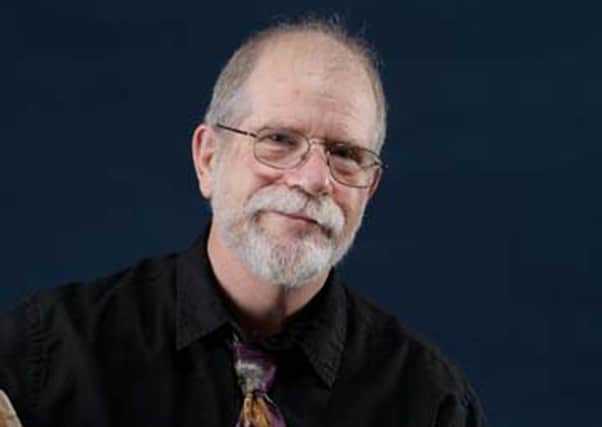Musician who played with Bowie faces deportation


Steve Forman, a percussionist who has been teaching music students at The Royal Conservatoire of Scotland in Glasgow for the past four years, insists he hasn’t cost the British taxpayer “a dime” and is desperate to stay in his new adopted home. However under immigration rules his current salary is ruled to be insufficiently high enough to allow him to remain in the country according to the Home Office.
Advertisement
Hide AdThe musician, who has lived in Scotland for the past six years, is being supported in his fight by David Gilmour, the guitarist with Pink Floyd who today asked the British Government to let him stay and insisted it would be a “tragic loss” if he was forced to return to America.
Mr Forman, who is 68 and said he does not claim benefits of any kind, has been teaching music students at the conservatoire for four years. His musical CV includes playing on a number of albums by artists such as Pink Floyd, David Bowie, John Lennon and Fleetwood Mac. He has also worked on a number of movie soundtracks including Steven Spielberg’s blockbuster ET, as well as Last of the Mohicans and Pretty Woman.
Mr Forman, who is originally from Los Angeles, was required to renew his work visa earlier this year but was told by the UK Home Office that his academic salary was not high enough and he needed to be earning in excess of £31,000 a year. He has launched an appeal and is awaiting the outcome but if unsuccessful, he will be required to leave the country within seven days. In the meantime he has been suspended from his post at the conservatoire, whose students include David Tennant, James McAvoy, Tom Conti and Robert Carlyle, as he does not have a work permit. Students have started a petition to try to prevent Mr Forman being deported, getting 700 signatures in 24 hours as his suspension left 45 music students without a teacher for a course in rhythm theory.
David Gilmour, a founder member of Pink Floyd said; “We need innovators and mentors like him. I find it very odd that he is being faced with being sent back to the US when he clearly has so much to offer the next generation. It is wonderful that he has chosen to channel his unique talent into teaching. His skills and approach are totally his own and as far as I know there is nobody I know of like him teaching rhythm in the UK or even Europe.”
Mr Forman said: “Glasgow is heaven for me. It is Valhalla. I’m contributing. I’m not going to cost you a dime. I’ll pay for my own funeral. I just want to keep working. I’m teaching people what I know. All the other guys I worked with are polishing their Mercedes Benz and lounging by the pool. I don’t want to be retired. I want to empower other people.”
A spokesperson for RCS (Royal Conservatoire of Scotland) said: “Steve Forman will be sorely missed by staff and the students. He is a well-respected teacher and an expert in his area which is rhythm theory. We have been very supportive of Steve. We have done our utmost to support him through this for some time now. The UK Border Agency made a decision on his eligibility to stay in the UK and we have to abide by that.”
Advertisement
Hide AdThe Scottish Governmentonight called on the Home Office to reconsider the case. A spokesman said: “The talent and expertise of people such as Steve Forman make a welcome contribution to developing Scotland’s future musical talent. The Scottish Government is aware of Mr Forman’s situation and we are liaising with the Home Office on this case. This case reinforces existing Scottish Government concerns that immigration policy in the UK is inflexible and does not address Scotland’s particular economic and demographic needs.”
SEE ALSO